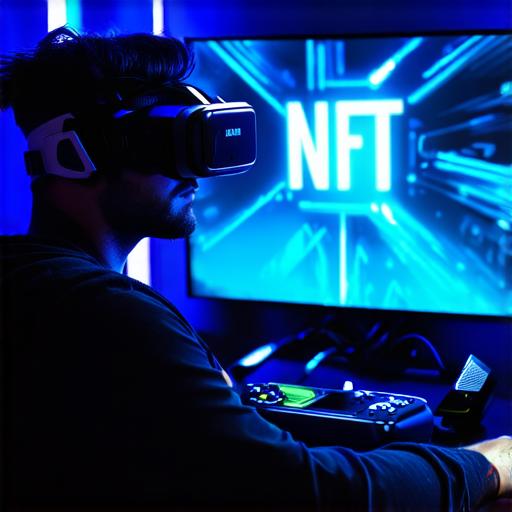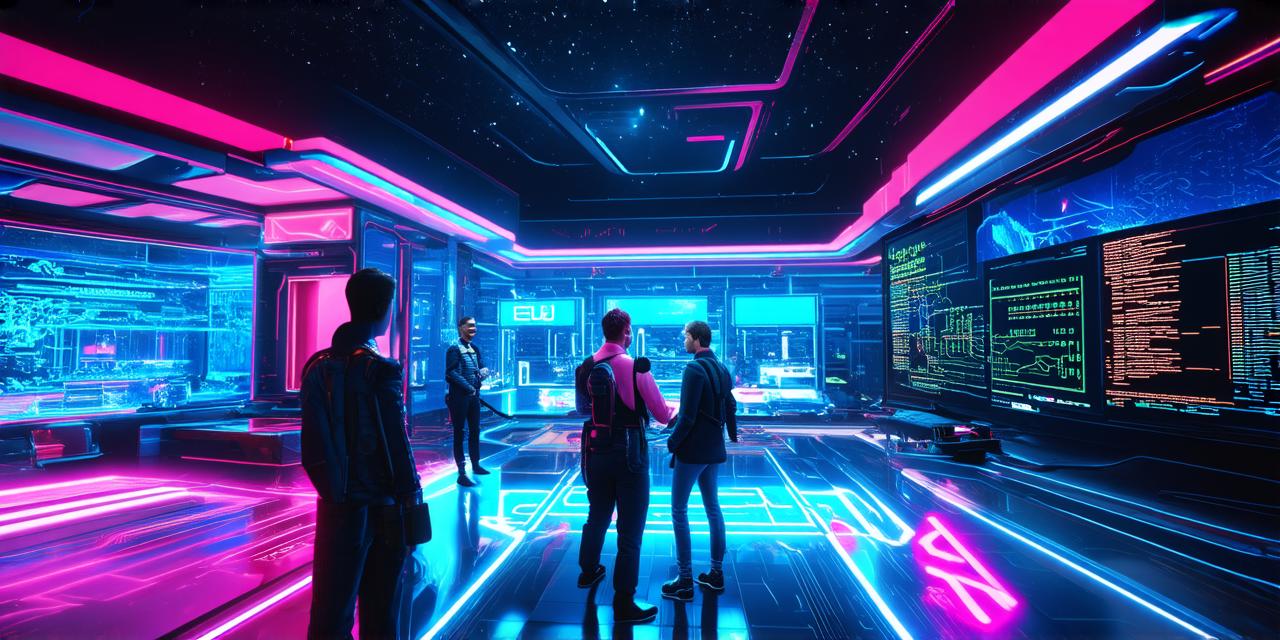NFTs in Gaming: A Brief Overview
Gaming has always been a major driver of innovation, pushing the boundaries of technology and entertainment. With the advent of NFTs, this trend is likely to continue as gaming companies look for new ways to engage with players and monetize their games.
NFTs are used in gaming to create unique digital assets that can be bought, sold, and traded on the blockchain. These assets can be anything from virtual collectibles like rare in-game items or limited-edition skins to more complex digital experiences like interactive storylines or exclusive gameplay modes.
The main advantage of NFTs in gaming is their ability to create a sense of ownership and scarcity around digital goods. By tokenizing these assets, they become unique and valuable, creating a new revenue stream for game developers and incentivizing players to engage with the game more deeply.
Benefits of NFTs in Gaming
There are several benefits to using NFTs in gaming:
- Monetization: NFTs can be bought, sold, and traded on the blockchain, creating a new revenue stream for game developers.
- Engagement: By creating a sense of ownership and scarcity around digital goods, NFTs can incentivize players to engage with the game more deeply. This can include completing quests, participating in events, or simply collecting rare items.
- Ownership: NFTs provide a new level of ownership for digital assets, allowing players to truly own and trade their virtual goods on the blockchain. This can create a sense of permanence and value around these assets, making them more appealing to players.
- Community: NFTs can also be used to build and engage gaming communities. By creating exclusive content or gameplay modes that are only available to NFT holders, game developers can create a sense of exclusivity and community among their most dedicated fans.
Use Cases for NFTs in Gaming
There are several use cases for NFTs in gaming, including:
- Collectibles: One of the most popular use cases for NFTs in gaming is collectibles. These can include rare in-game items like weapons or armor, limited-edition skins, or even unique characters that can be bought, sold, and traded on the blockchain.
- Virtual Real Estate: NFTs can also be used to create virtual real estate within games. This can include exclusive islands, buildings, or even entire cities that are only available to NFT holders.
- Games as a Service (GaaS): NFTs can be used to monetize games as a service, allowing players to buy and sell unique in-game items or limited-edition skins on the blockchain. This can create a new revenue stream for game developers and incentivize players to engage with the game more deeply.
- Interactive Storylines: NFTs can also be used to create interactive storylines within games. By creating unique narratives that are tied to specific NFTs, game developers can create a sense of ownership and engagement among their most dedicated fans.
Challenges for NFTs in Gaming

There are several challenges associated with NFTs in gaming, including:
- Regulation: The use of NFTs in gaming raises several regulatory issues, including questions around ownership, taxation, and intellectual property rights. Game developers will need to navigate these complex legal issues as they seek to monetize their games using NFTs.
